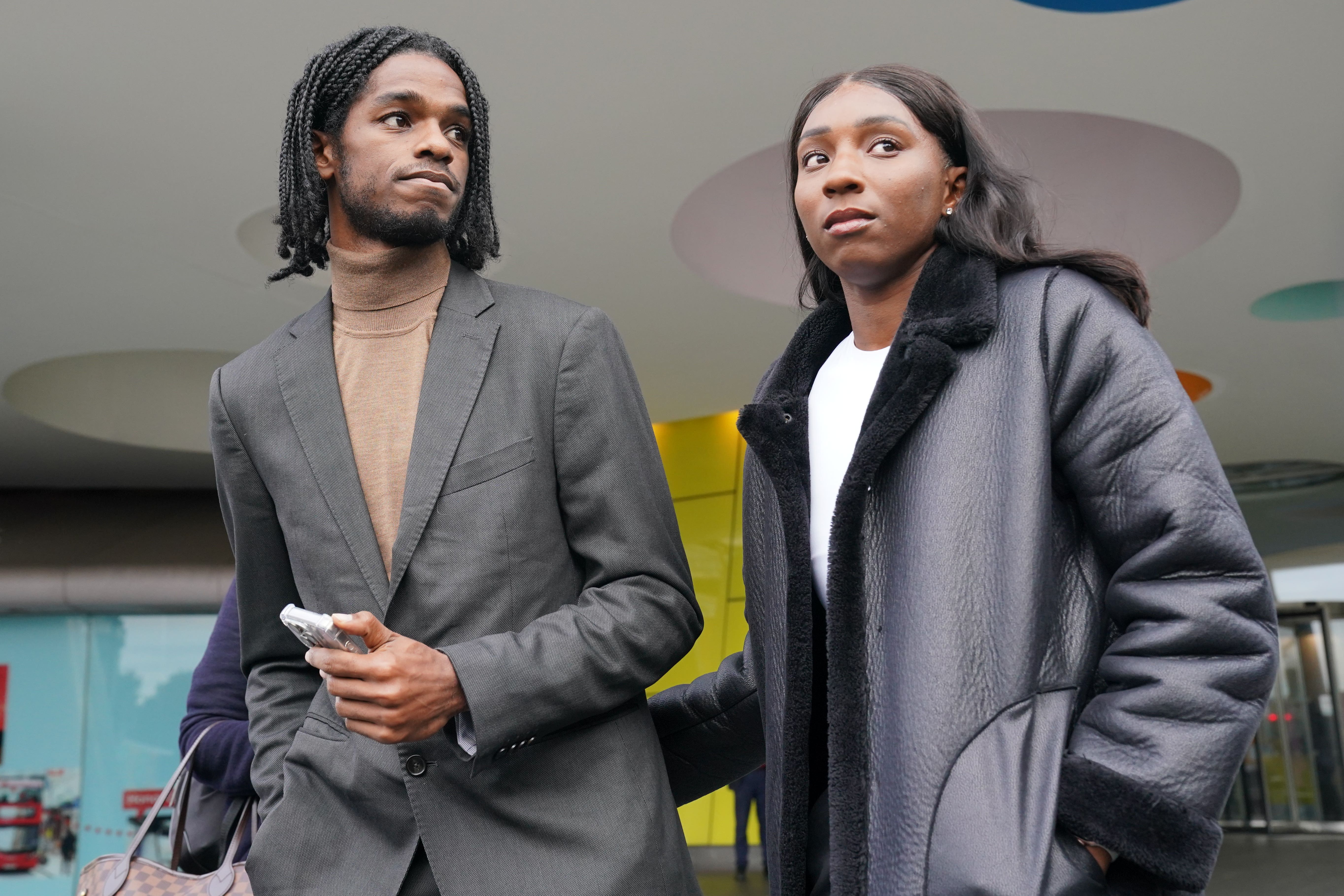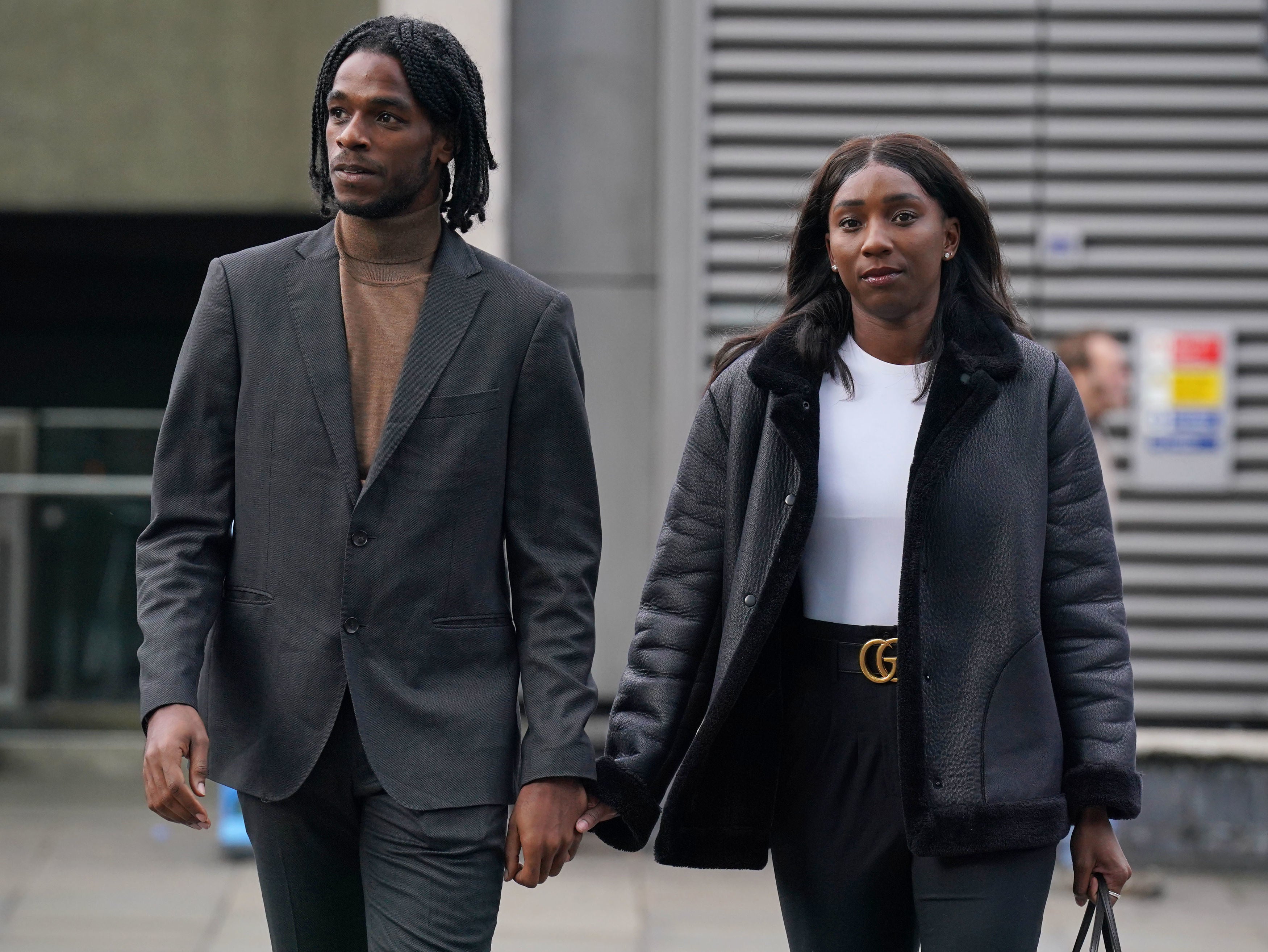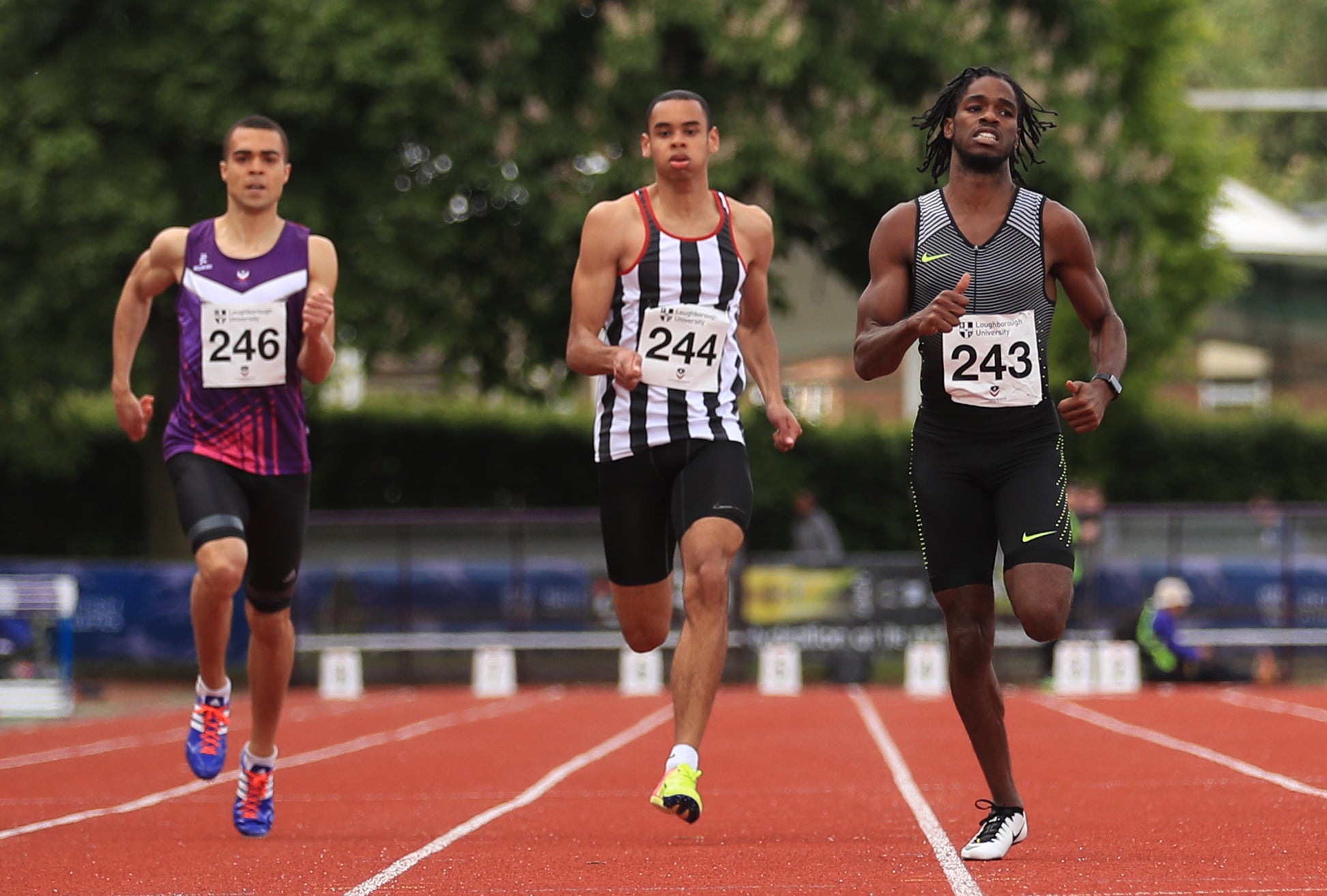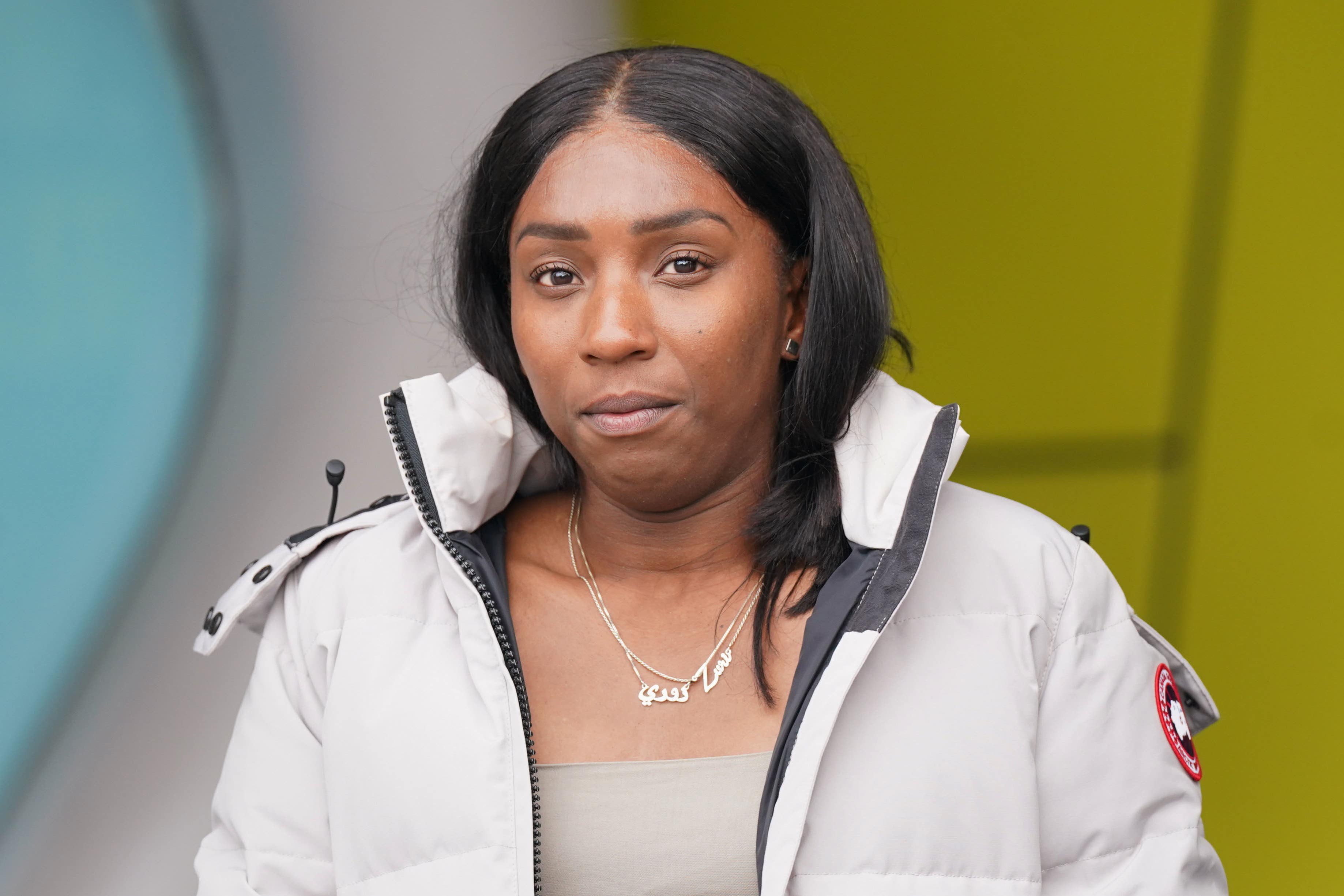Two Met officers sacked over ‘racist’ stop and search of Black athletes Bianca Williams and Ricardo Dos Santos
Olympic sprinter Dos Santos accused officers of handcuffing and searching the pair for ‘driving while Black’
Two Metropolitan Police officers have been sacked for gross misconduct over the “racist” stop and search of top Black athletes Bianca Williams and Ricardo dos Santos.
Olympic sprinter Mr Dos Santos, 28, accused officers of detaining him for “DWB, driving while Black” after he and his partner, Team GB athlete Ms Williams, 29, were handcuffed and searched on suspicion of having drugs and weapons in July 2020.
Police followed them as they drove to their west London home from a training session with their son, then aged three months old, in the back seat of their Mercedes. Traumatic footage of the incident showed Ms Williams in distress as Mr Dos Santos was pulled from the driver’s seat by officers. Nothing was found in the search.
The pair later complained to the police watchdog saying they were racially profiled. On Wednesday, a disciplinary hearing found the behaviour of PC Jonathan Clapham and PC Sam Franks amounted to gross misconduct after they lied about smelling cannabis during the stop and search.

Speaking after the hearing, Mr Dos Santos said the case proved “very little” had changed in London policing since the racist murder of Black teenager Stephen Lawrence in 1993, after which a public inquiry concluded the Met was institutionally racist.
The disciplinary panel chairwoman, Chiew Yin Jones, said the conduct of PC Clapham and PC Franks had breached standards of professional behaviour for honesty and integrity and amounted to gross misconduct. The Met officers, who were part of a territorial support group unit tasked with helping to cut gang and knife crime, were dismissed without notice.
However, the panel found it not proven that PC Clapham and PC Franks breached the standards of professional behaviour in respect of equality and diversity.
Three other officers, acting Sgt Rachel Simpson, PC Allan Casey and PC Michael Bond, also denied allegations that they breached police standards over equality and diversity during the stop and search. They were found not to have breached any standards.
The Independent Office for Police Conduct (IOPC) brought the case against the five officers and said that the “excessive, unreasonable and unjustified” detention of the athletes was “because they were Black”.

All five officers denied accusations of racism.
Speaking after the outcome, Mr Dos Santos said: “We’ve supported the IOPC case over the past three years and it’s highlighted what most Black people are far too aware of regardless of their background, education and employment. They are nine times more likely to be stopped by the Met and three times more likely to be handcuffed.
“The allegations made by the police officers that I was guilty of bad driving, threatening violence and drugs were dishonest. I believe these are false allegations and were based on racist stereotypes and show very little has changed in policing in London since the Stephen Lawrence case.
“If you can’t trust the police to be honest and accept when they have done bad and stereotype Black people, what hope is there? I don’t believe that the panel has been brave enough to review what the Casey report has already clearly stated, which is that the Met Police is institutionally racist.”
Karon Monaghan KC, for the IOPC, earlier told the panel that the watchdog’s case alleged there is “institutional discrimination” in the Met Police.
She cited reports that Black people are much more likely to be stopped and searched in London, adding that Black people are routinely treated with “more suspicion and hostility” by police officers and “stereotyped as criminal”.
Giving evidence, Mr Dos Santos accused the officers of detaining him for “DWB, driving while Black”. The sprinter told the panel that he had been afraid for the safety of his family during the incident, following “traumatic experiences” as a young Black person who had been stopped by police on multiple occasions.

He told the hearing he believed he is stereotyped as a Black man driving a “nice car” as someone who “must be engaged in criminality”, adding that he was stopped nine times within four weeks of buying a car in 2018.
When shown body-worn footage of him mocking and swearing at the officers, he accepted his behaviour, adding: “Everybody deals with trauma differently.”
At the hearing, Ms Williams cried as she watched footage of Mr Dos Santos getting pulled from the driver’s seat to the roadside and handcuffed.
She denied suggestions her partner could have acted differently to avoid police attention, insisting: “He can’t change the colour of his skin.”
The panel heard the officers followed Mr Dos Santos in their police carrier because of the “appalling” and “suspicious” nature of his driving and were doing their duty when they conducted the stop and search.
During cross-examination PC Clapham claimed his colleagues behaved “leniently” with Mr Dos Santos adding that, based on his behaviour, it was “despicable” he could be seen as a “role model”.
However, Ms Monaghan told the panel that descriptions of the athlete’s driving were “exaggerated”, noting that he was not speeding around corners, driving through red lights or skidding on the road and he indicated before all of his turns.

The mayor of London said the case raises “serious questions” about the Met’s use of stop and search and the use of force against Black Londoners.
Sadiq Khan added: “It is vital lessons are learned from this incident and I will support and hold the Met and the Commissioner to account on delivering the urgent improvements needed so that every Londoner can feel protected and served.”
The IOPC urged victims of police discrimination to speak up, adding that the Met needs to “work hard” to restore the trust and confidence of Black communities.
Paying tribute to the athletes’ “patience and determination”, IOPC director Steve Noonan said: “We are acutely aware that Bianca and Ricardo’s interaction with police and their feeling of being treated less favourably by officers because of their race, is reflective of the experiences of many Black people across London and throughout England and Wales.”
He added: “We would encourage anyone who feels they have been mistreated or discriminated against by the police to exercise your right to complain. It is only by speaking up, that you can make your voice heard.”
The Met’s deputy assistant commissioner Matt Ward apologised to the athletes.
He said: “Honesty and integrity are at the core of policing and, as the panel has concluded, there can be no place in the Met for officers who do not uphold these values. Mr Dos Santos and Ms Williams deserved better and I apologise to them for the distress they have suffered.”
He added: “I remain confident that the Met can and will learn from the experiences of Ms Williams and Mr Dos Santos and work alongside communities to deliver fair and effective stop and search for all Londoners.”



